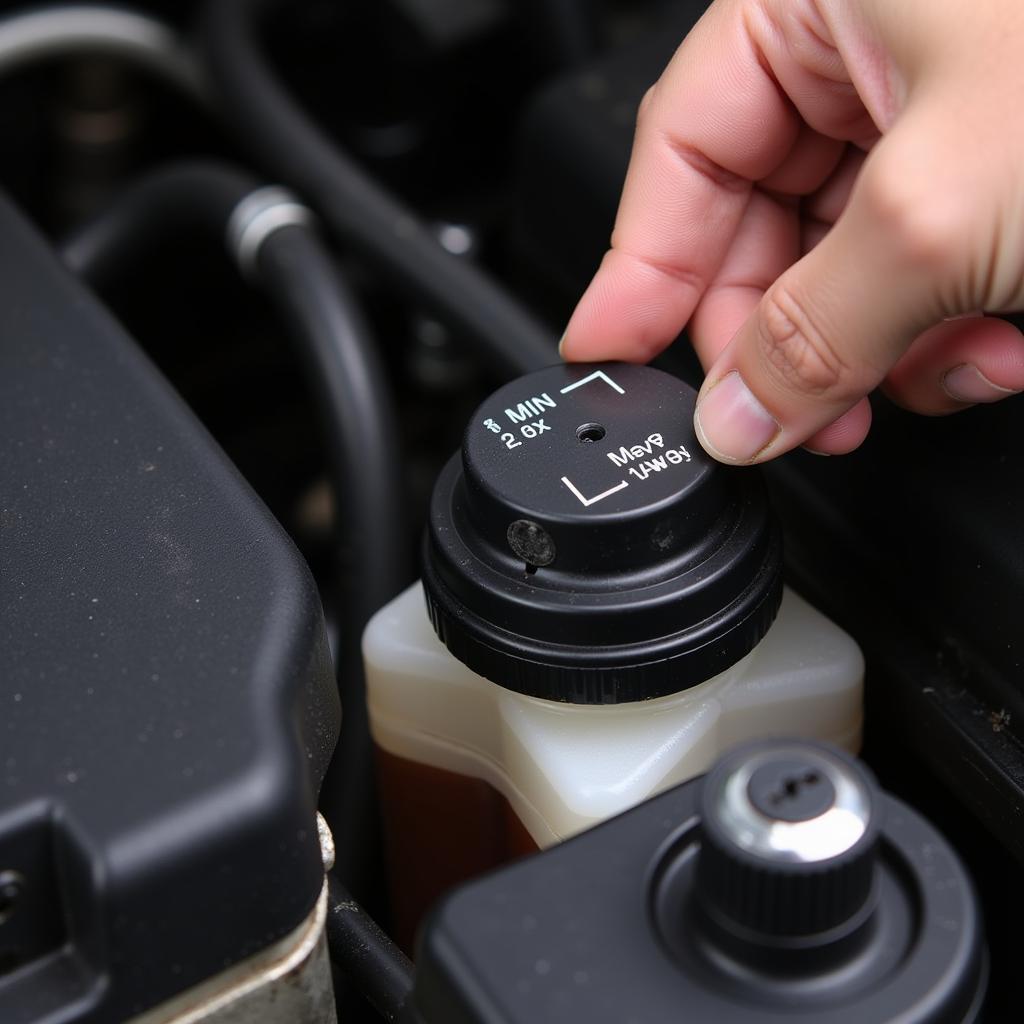The brake warning light on your 2007 Ford Focus dashboard is a crucial safety feature. When illuminated, it signals a potential issue with your braking system that requires immediate attention. Ignoring this warning could lead to reduced braking performance or even complete brake failure, putting you and others at risk.
This comprehensive guide will delve into the common reasons behind the brake warning light in a 2007 Ford Focus and provide you with potential solutions to address them.
Understanding Your Ford Focus Brake Warning Light
The brake warning light, often symbolized by an exclamation mark within a circle or parentheses, can illuminate for several reasons. Some are simple fixes while others indicate a serious problem.
Common Causes for Illumination:
- Low Brake Fluid: This is the most frequent culprit. Brake fluid is essential for transmitting force from the brake pedal to the wheels, and a leak or low fluid level can significantly compromise braking performance.
- Worn Brake Pads: Brake pads are designed to wear down over time. When they reach a critical point, the brake warning light activates to alert you to replace them.
- Faulty Brake Light Switch: The brake light switch activates your brake lights when you depress the pedal. A malfunctioning switch can cause the brake warning light to illuminate, even if the braking system itself is functioning correctly.
- ABS Issue: Your 2007 Ford Focus has an Anti-lock Braking System (ABS). If the ABS module or a wheel speed sensor malfunctions, it can trigger the warning light.
- Parking Brake Engaged: While seemingly obvious, sometimes the parking brake isn’t fully disengaged, causing the light to stay on.
Troubleshooting the Brake Warning Light
1. Check Your Parking Brake
Begin with the simplest solution: ensure your parking brake is fully released. Sometimes a slight engagement is all it takes.
2. Inspect Brake Fluid Level
Locate the brake fluid reservoir under the hood. The reservoir will have a “min” and “max” marking. If the fluid level is below the “min” mark, add the appropriate DOT 3 or DOT 4 brake fluid (check your owner’s manual) to the “max” line.
3. Examine Brake Pads
Visually inspect the brake pads through the wheel spokes. If you see less than 1/4 inch of friction material remaining, it’s time for a replacement.
4. Consider Professional Diagnostics
If the simple checks don’t resolve the issue, it’s crucial to seek professional assistance. A qualified mechanic can perform a comprehensive diagnostic scan to pinpoint the root cause of the problem, whether it’s a faulty brake light switch, ABS module issue, or a hidden brake fluid leak.
"It's always better to err on the side of caution when it comes to brakes," says John Smith, a certified automotive technician with over 15 years of experience. "Ignoring a brake warning light can lead to much more costly repairs down the line or, even worse, a dangerous situation on the road." What to Do When the Brake Warning Light Comes On While Driving
If the brake warning light illuminates while driving, it’s crucial to remain calm and take immediate action:
- Safely pull over: Engage your hazard lights and gradually steer your vehicle off the road and away from traffic.
- Assess the situation: Once safely stopped, check your parking brake and carefully inspect the brake fluid level.
- Call for assistance: If you identify a low fluid level or suspect a serious issue, do not attempt to drive further. Call a tow truck and have your Ford Focus transported to a trusted mechanic or dealership for diagnosis and repair.
Conclusion
A glowing brake warning light in your 2007 Ford Focus should never be ignored. By understanding its potential causes and taking appropriate action, you can ensure your safety and address any underlying brake system issues promptly. Remember, regular maintenance and timely repairs are crucial for optimal braking performance and overall vehicle safety. If you’re ever unsure about diagnosing or addressing a brake-related problem, seeking professional help is always the safest course of action.

